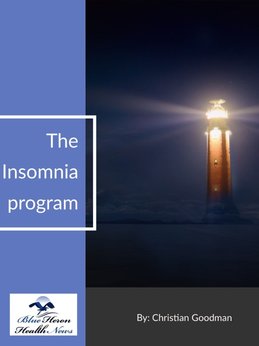
The Insomnia Program™ By Christian Goodman This program has been created by Christian Goodman, a natural health expert and sufferer of insomnia. He has used an audio program to let your fall sleep with the help of a bit of a hypnotic effect on your body.
How does insomnia impact immune function?
Insomnia can have a significant negative impact on immune function, leading to an increased susceptibility to infections, slower recovery from illness, and a higher risk of chronic diseases. Here’s how insomnia affects the immune system:
1. Reduced Production of Immune Cells
- White Blood Cells: Sleep is essential for the production and optimal functioning of white blood cells, which play a crucial role in the immune response by identifying and attacking pathogens like bacteria and viruses. Insomnia can reduce the production of these cells, weakening the body’s ability to fight off infections.
- Cytokines: During sleep, the body produces cytokines, proteins that help regulate the immune response and inflammation. Some cytokines are needed to promote sleep, and others are produced during sleep to help combat infections, inflammation, and stress. Insomnia can lead to lower production of these protective cytokines, impairing the immune response.
2. Increased Inflammation
- Chronic Inflammation: Insomnia can cause a persistent state of low-grade inflammation by disrupting the balance of pro-inflammatory and anti-inflammatory cytokines. This chronic inflammation can weaken the immune system and is associated with an increased risk of developing various chronic conditions, including cardiovascular disease, diabetes, and autoimmune disorders.
- Increased CRP Levels: Insomnia has been linked to elevated levels of C-reactive protein (CRP), a marker of inflammation in the body. High CRP levels are associated with an increased risk of infections and chronic diseases.
3. Impaired Immune Memory
- T-Cell Function: Sleep is important for the formation and function of T-cells, which are critical for adaptive immunity. T-cells help the body recognize and remember pathogens it has encountered before, ensuring a faster and more effective response to future infections. Insomnia can impair T-cell activation and function, reducing the body’s ability to build immune memory and respond effectively to infections.
- Antibody Production: Insomnia can also impair the production of antibodies, proteins that help neutralize and eliminate pathogens. This is particularly important after vaccination, as adequate sleep is needed to mount a strong immune response and develop long-lasting immunity.
4. Delayed Immune Response
- Slower Immune Response: Insomnia can delay the immune system’s response to pathogens, making the body less effective at fighting off infections. This delayed response can lead to longer and more severe illnesses.
- Impaired Wound Healing: Sleep is essential for tissue repair and wound healing, processes that are also part of the immune response. Insomnia can slow down wound healing and recovery from injuries by impairing the body’s ability to repair tissues and fight off potential infections at the wound site.
5. Increased Susceptibility to Infections
- Higher Infection Risk: Studies have shown that people who suffer from insomnia are more susceptible to common infections, such as colds and the flu. This is because sleep deprivation weakens the immune system’s ability to detect and respond to pathogens effectively.
- Longer Recovery Time: When individuals with insomnia do become ill, they often experience longer recovery times due to their impaired immune function. The body’s reduced ability to mount a strong immune response can result in more prolonged and severe symptoms.
6. Impact on Vaccination Efficacy
- Reduced Vaccine Effectiveness: Insomnia and sleep deprivation can reduce the effectiveness of vaccines by impairing the body’s ability to produce a strong antibody response. Adequate sleep before and after vaccination is important for ensuring the vaccine elicits the intended immune response.
- Weaker Immunological Memory: The development of long-term immunological memory, which is crucial for protection against future infections, can be compromised by insomnia. This means that vaccines may not provide as long-lasting or as robust protection in individuals with chronic sleep problems.
7. Stress and Immune Suppression
- Increased Cortisol Levels: Insomnia is associated with elevated levels of cortisol, a stress hormone that can suppress immune function when present in high amounts over time. Chronic stress and insomnia can together weaken the immune system, making the body more vulnerable to infections and disease.
- Disrupted Circadian Rhythms: Insomnia can disrupt the body’s natural circadian rhythms, which regulate many biological processes, including immune function. Disrupted circadian rhythms can lead to an imbalance in immune activity, reducing the body’s ability to respond effectively to threats.
8. Long-Term Health Consequences
- Risk of Chronic Diseases: The chronic inflammation and immune suppression caused by long-term insomnia increase the risk of developing chronic diseases such as heart disease, diabetes, and certain cancers. These conditions further strain the immune system, creating a vicious cycle of worsening health.
- Autoimmune Disorders: Prolonged insomnia may also contribute to the development or exacerbation of autoimmune disorders, where the immune system mistakenly attacks the body’s own tissues. The chronic inflammation associated with insomnia is a key factor in the development of these disorders.
In summary, insomnia has a profound impact on immune function, leading to a weakened immune response, increased susceptibility to infections, slower recovery, and a higher risk of chronic inflammation and disease. Prioritizing good sleep hygiene and addressing sleep disorders like insomnia is essential for maintaining a healthy and effective immune system.

The Insomnia Program™ By Christian Goodman This program has been created by Christian Goodman, a natural health expert and sufferer of insomnia. He has used an audio program to let your fall sleep with the help of a bit of a hypnotic effect on your body.